Recent Additions: The Grand Tour arrives at WWEnd
The Grand Tour series by author Ben Bova deals with the exploration and colonization of the solar system. Each book tends to focus on a different planet with some common themes and characters appearing across the series. Exploration, colonization, amazing discoveries, corporate espionage, murder, space battles… this series has got something for everyone.
Strangely, Dr. Bova has not had much luck in the awards department despite a large and faithful following. The only Grand Tour book to garner a nomination was 2006’s Titan which won the 2007 Campbell Award. There are 18 total books in the series including the short story collection Tales of the Grand Tour and the 4 volumes that make up the Asteroid Wars: The Precipice, The Rock Rats, The Silent War and The Aftermath. We’ve got them listed in the author’s preferred chronological order though many of the stories overlap in time.
One of the nice things about this series is that despite the character and time overlaps most of the books can be read independantly or out of order. The exceptions would be the Asteroid Wars and the Mars trilogy: Mars, Return to Mars, and Mars Life which should be read in sequence as each novel builds on what went before. I cherry picked my way through most of the planets reading Mars, Saturn, Jupiter and Venus and enjoyed them all. I really like the nice cover art as well. They’ve got a classic SF look.



















 Full Details
Full Details
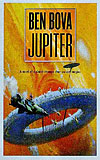
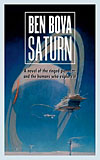
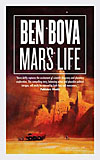
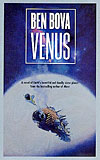
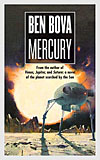


11 Comments
I see this books at the library constantly, but had no idea in which order to read them. Good to have a starting point finally!
Is this series finished? Uranus and Neptune are still missing.
Not finished. According to his official site Dr. Bova is working on a sequel to Jupiter called Leviathans of Jupiter. No mention of the missing planets.
I sent an email to Dr. Bova about Uranus and Neptune and here is his reply: "I don’t have any plans at the moment to do novels set beyond Saturn, but that could change. I’d need to find a reason for human missions to those outer planets. One of the toughest parts of writing VENUS was to figure out why anyone would want to go to that hellhole – aside from scientists eager to learn more about the planet and its past." In addition, Dr. Bova has agreed to do an interview with WWEnd! We’ll be talking about the Tour for sure, so look for that in the coming weeks!
It is so refreshing to stumble over here and see someone talking about these books. For years I have slobbered over the John Harris covers and yet had some unreasonable fear of picking any of them up. Every new year I find myself thinking, ‘this will be the year’. So…I realize that you have the list in the author’s preferred order, which is great, but what is your opinion. Should they be read in that order, or do you recommend a specific one that will hook me and keep me coming back for more?
Carl V., I don’t think the order is important at all except for the series within the series. You wouldn’t want to read Return to Mars before Mars for instance. I say pick your favorite planet and start there or if you have no preference start with Mars or The Asteroid Wars. They are fun and have a lot of action too.
Thanks Dave, I appreciate the feedback.
I think order is important, but how that order goes really depends on the series. Generally, I like to go in the order of publication date. I first came to this conclusion while reading the Hornblower series (not SF/F, I know). I read according to the chronology of the story, which meant that I started with Lt. Hornblower, and worked my way up. Lt. Hornblower, however, was a prequel written much later than the other books. Captain Hornblower was the first book written, and you could tell. It wasn’t poorly written, but the characters were not yet established. You could tell that Forester hadn’t quite figured out these characters, yet. If I had read Captain Hornblower first, that would have been fine…because I hadn’t figured them out, either. By the time I got to the first written book, then, I knew what these characters should be doing better than the author! It was frustrating.Also, discrepancies were more apparent. People were meeting "for the first time" in Captain Hornblower, who(m) had clearly already met in the prequels. This was an editorial choice Forester had to make in order to make his prequels more interesting, and he just expected his readers not to remember such minute details in his very first book…but, as I was reading with foreknowledge, I encountered every one.Foundation works that way, too. I doubt the prequels would read as well by internal order. I could be wrong, but I’d rather discover things in the same order that the author does.
Rico, that’s how I am when it’s a series like Hornblower where the characters stay the same across many volumes. For a series of loosley connected parts it’s not such a big deal. I often wonder why an author would try to have you read their series out of published order? Presumably they refine their craft over the years. In Bova’s case he has only listed them in story chron order so his readers can see how they all fit together. He does not suggest you read them that way. Eighteen books is a rather long series and I think he’s made an effort to ensure that they all stand on their own with the exception of the mini series already alluded to.
That is great to know about Hornblower. My wife recently came across a wonderful 1946 copy of Lt. Hornblower at the book sale at her library the other day and picked it up for me. Had I simply looked at chronological order I might have started with this one. I’d much rather hold off on it now just so I don’t have issues with the first book.
Even in loosely connected series, authors still shared laws of his/her universe that might evolve over time, bits of historical assumptions might come to light, or the author’s writing style might improve. If you read by publication date, your experience of those things evolve with the author. That author is making assumptions about an audience that is buying the book at the time of publication that might not be true at another time (the existence of the USSR is one common example). If you don’t by publication order, then you tend to get these epistorical details in a haphazard order. On the other hand, if you do go by publication date, even if it causes the internal chronology to skip around, you are being led by an author that is aware of it, and who will lead you by the hand.
Sorry, the comment form is closed at this time.